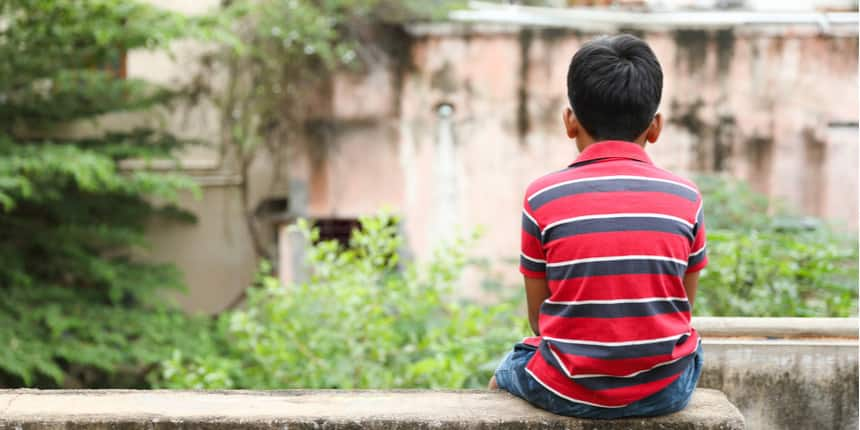44% children struggle to express their feelings since COVID-19: Study
Vagisha Kaushik | June 28, 2022 | 10:34 PM IST | 3 mins read
According to a Rapid Need Assessment, 24% of parents feel there is an increase in instances of scolding or punishment to children since the pandemic.

NEW DELHI: 44% of surveyed children struggle to express their feelings since COVID-19 pandemic outbreak, says a new study. According to a Rapid Need Assessment conducted by “Save the Children-Bal Raksha Bharat” to understand the cascading effects of Covid-19 on the lives of children belonging to the most marginalized section, “44% of children reported that they could not share their sorrow/anger/stress-related feelings with anyone and 3 out of 4 children could not share serious concerns like domestic or spousal violence with anyone.”
The study found that during June 2020 to December 2021, 39% of children were worried about death, illness, separation of a loved one, or fear of disease. 27% reported feelings of loneliness and 26% reported of disturbed sleep due to worries. Being in a physical fight during the past 18 months was also reported by one-fifth of children (20%).
Also Read | TS SSC result 2022 on June 30; steps to check Telangana 10th results
The survey stated that isolation from the peer group has had a major impact on the mental well-being of the children with increased cases of child labour and substance abuse among children as they struggle to cope with a lack of coping mechanisms to express their feelings and thoughts.
The feeling of loneliness and worry was maximum among children of Karnataka with 59% feeling lonely while 83% felt worried about death, illness, separation, or disease. Whereas children from Delhi reported the most disturbed sleep patterns amounting to 51%. Physical fighting was maximum in Jharkhand with 42% children being involved.
Effect of Covid-19 on children’s mental health
24% surveyed parents feel there is an increase in instances of scolding or punishment to children since the COVID-19, which is reportedly maximum in Delhi and minimum in Madhya Pradesh, according to the study.
“The parents' perceptions on probable risks to children during Covid indicate that 'Parents' absence from home during Covid/lockdown due to any reason' to be most risky (77 per cent) and ‘Girl child taking up more household chores during Covid/lockdown’ to be least risky (56 per cent). The most sensitised proportion of caregivers belonged to Maharashtra and least from Assam," the report said.
Also Read | West Bengal schools to hold evaluation session to assess students academic progress in last 2 years
“In an indirect inquiry on child abuse, parents observed changes in their children’s behavior in terms of ‘abnormal interest about sex or genitals’ (12%), ‘Fear of being left alone with a given person (27%), ‘Sudden emotional or behavioral change’ (27%), ‘Abandonment of previous play habits’ (29%), ‘Genital or anal injuries’ (15%) and ‘Interest in age-inappropriate content online’ (25%),” the study said.
Effect of Covid-19 on adolescent girls
A little less than one-third, 29% adolescent girls could not access any kind of adolescent, reproductive and sexual health (ARSH) related information during the pandemic, with Karnataka (92%) being most impacted and Jharkhand (1%) along with Delhi (1%) being least impacted.
About 5% of adolescent girls and women could not access sanitary napkins in times of need (June 2020 to December 2021) by any means, with the highest being 15% in Madhya Pradesh.
Also Read | 54% of people in India turn to social media for factual information: OUP study
"Overall, around 88 per cent households (highest in Madhya Pradesh-100 per cent and least in Delhi-69 per cent) faced one or other kind of problem(s) to get sanitary napkins. Of those who faced problems, the top three challenges were inability to visit shop (33 per cent), non-availability of product in shop (32%) and lack of enough money to buy product (30 per cent)," the report added.
A total of 4,052 respondents, including 2,743 adults and 1,309 adolescents, spread across 24 districts in six states -- Madhya Pradesh, Jharkhand, Delhi, Karnataka, Maharashtra and Assam -- were interviewed for the study.
Follow us for the latest education news on colleges and universities, admission, courses, exams, research, education policies, study abroad and more..
To get in touch, write to us at news@careers360.com.